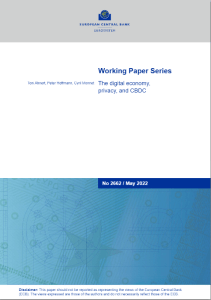The Commission has proposed an annual EU budget of €185.6 billion for 2023, to be complemented by an estimated €113.9 billion in grants under NextGenerationEU. The EU budget will continue to mobilise significant investments to boost Europe’s strategic autonomy, the ongoing economic recovery, safeguard sustainability and create jobs. The Commission will continue to prioritise green and digital investments while addressing pressing needs arising from recent and current crises.
The draft budget 2023, boosted by NextGenerationEU, is designed to respond to the most crucial recovery needs of EU Member States and our partners around the world. These financial means will continue to rebuild and modernise the European Union and strengthen Europe’s status as a strong global actor and reliable partner.

Council and Parliament reach provisional agreement on minimum wages |
Additional proposals to finance the impact of the war in Ukraine both externally and internally will be tabled later in the year, on the basis of a more precise needs assessment, as per the European Council conclusions of 31 May 2022.
The budget reflects the EU’s political priorities, which are crucial to ensure a sustainable recovery and to strengthen Europe’s resilience. To that end, the Commission is proposing to allocate (in commitments):
- €103.5 billion in grants from NextGenerationEU under the Recovery and Resilience Facility (RRF) to support economic recovery and growth following the coronavirus pandemic and to address the challenges posed by the war in Ukraine.
- €53.6 billion for the Common Agricultural Policy and €1.1 billion for the European Maritime, Fisheries and Aquaculture Fund, for Europe’s farmers and fishers, but also to strengthen the resilience of the agri-food and fisheries sectors and to provide the necessary scope for crisis management in light of expected global food supply shortages.
- €46.1 billion for regional development and cohesion to support economic, social and territorial cohesion, as well as infrastructure supporting the green transition and Union priority projects.
- €14.3 billion to support our partners and interests in the world, of which €12 billion under the Neighbourhood, Development and International Cooperation Instrument — Global Europe (NDICI — Global Europe), €2.5 for the Instrument for Pre-Accession Assistance (IPA III), and €1.6 billion for Humanitarian Aid (HUMA).
- €13.6 billion for research and innovation, of which €12.3 billion for Horizon Europe, the Union’s flagship research programme. It would receive an extra €1.8 billion in grants from NextGenerationEU.
- €4.8 billion for European strategic investments, of which €341 million for InvestEU for key priorities (research and innovation, twin green and digital transition, the health sector, and strategic technologies), €2.9 billion for the Connecting Europe Facility to improve cross-border infrastructure, and €1.3 billion for the Digital Europe Programme to shape the Union’s digital future. InvestEU would receive an extra €2.5 billion in grants from NextGenerationEU.
- €4.8 billion for people, social cohesion, and values, of which €3.5 billion Erasmus+ to create education and mobility opportunities for people, €325 million to support artists and creators around Europe, and €212 million to promote justice, rights, and values.
- €2.3 billion for environment and climate action, of which €728 million for the LIFE programme to support climate change mitigation and adaptation, and €1.5 billion for the Just Transition Fund to make sure that the green transition works for all. The Just Transition Fund would receive an extra €5.4 billion in grants from NextGenerationEU.
- €2.2 billion for spending dedicated to space, mainly for the European Space Programme, which will bring together the Union’s action in this strategic field.
- €2.1 billion for protecting our borders, of which €1.1 billion for the Integrated Border Management Fund (IBMF), and €839 million (total EU contribution) for the European Border and Coast Guard Agency (Frontex).
- €1.6 billion for migration-related spending, of which €1.4 billion to support migrants and asylum-seekers in line with our values and priorities.
- €1.2 billion to address defence challenges, of which €626 million to support capability development and research under the European Defence Fund (EDF), as well as €237 million to support Military Mobility.
- €927 million to ensure the smooth functioning of the Single Market, including €593 million for the Single Market Programme, and close to €200 million for work on anti-fraud, taxation, and customs.
- €732 million for EU4Health to ensure a comprehensive health response to people’s needs, as well as €147 million to the Union Civil Protection Mechanism (rescEU) to be able deploy operational assistance quickly in case of a crisis.
- €689 million for security, of which €310 million for the Internal Security Fund (ISF), which will combat terrorism, radicalisation, organised crime, and cybercrime.
- €138 million for secure satellite connections under the proposal for a new Union programme, the Union Secure Connectivity Programme.
- Budgetary means for the European Chips Act will be made available under Horizon Europe and through redeployment from other programmes.
The draft budget for 2023 is part of the Union’s long-term budget as adopted by the Heads of State and Governments at the end of 2020, including subsequent technical adjustments, seeks to turn its priorities into concrete annual deliverables. A significant part of the funds will therefore be dedicated to combatting climate change, in line with the target to spend 30% of the long-term budget and the NextGenerationEU recovery instrument on this policy priority.

The digital economy, privacy, and CBDC |







Leave a Reply